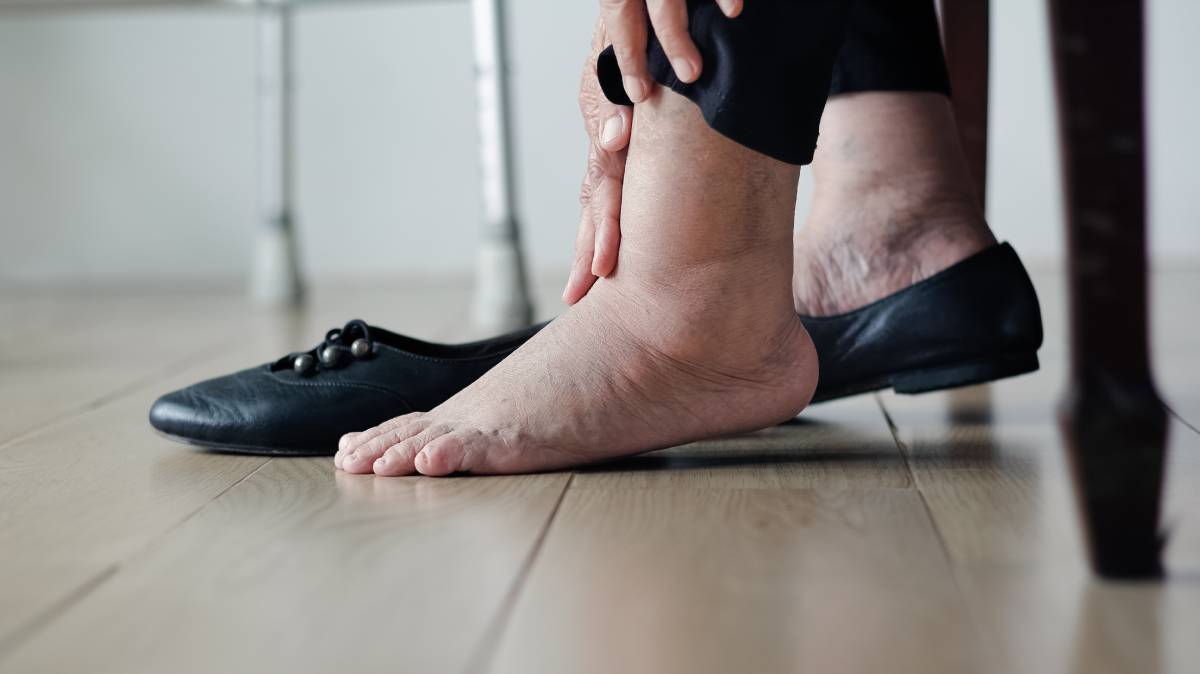Swollen, puffy feet can be painful and inhibit movement. There can be a number of causes, with some more serious than others. These are the signs and symptoms to keep an eye out for, and when it’s time to see a doctor.
Injury
When falling or taking a misstep, you can injure your ankles. Rolling an ankle, sprains or broken bones can cause feet to swell as blood rushes to the area. If it hurts to put weight on your foot or you can see notable changes to its appearance, consult your doctor.
Oedema
After standing for hours at a time or taking a long flight you may notice that your feet have become puffy. This is because your body is holding too much water and is storing it in your feet, hands or face. While this is usually temporary and goes away on its own, it may be an indication of other health problems such as heart failure, kidney or liver disease or low protein levels.
Chronic venous insufficiency
When blood moves from your feet and legs to the heart, it passes through a number of one-way valves that stop it from flowing back down. As you age, or as a result of a blood clot, these valves can become damaged, causing blood to pool in your feet, making them swell.
Lymphoedema
Lymph nodes are small glands that are a part of your body’s immune system. They are located throughout your body including your neck, armpits, gut, groin and in between your lungs. When these glands are damaged or removed, most commonly during cancer treatment, your body removes less fluid, causing it to build up in your arms, legs and feet.
Massage, and exercise can be used to manage symptoms. In serious cases, pneumatic compression is one of the most common treatment methods. It involves wearing air-filled sleeves on the affected areas that apply pressure and force fluid to move away.
Liver disease
If you drink heavily or have hepatitis – inflammation of the liver – your liver may be under strain, forced to constantly repair itself and building up scar tissue. When it struggles to work as it should, fluid can pool in your legs, belly and feet.
Heart failure
If your heart is struggling to efficiently pump blood in the right direction, it can pool in your legs and feet, causing them to swell. If you suspect you are experiencing heart failure, contact emergency services right away.
Other symptoms include discomfort when lying flat, struggling to catch your breath and noticing that your heart is beating in an unusual or fast rhythm.
Kidney disease
Conditions such as high blood pressure and diabetes can cause your kidneys to become inefficient at filtering your blood. This can cause higher rates of salt in your blood, meaning your body holds onto more water than it should. Gravity causes this water to sink and pool at your feet and ankles, causing them to swell.
What to do about swollen feet
WebMD recommends following the RICE procedure, which stands for rest, ice, compression and elevation. Taking pressure off your feet can help to prevent further swelling and using compression garments or applying icebags can help to reduce blood flow and puffiness in the area. You can wrap your feet to apply pressure or wear special compression socks. Elevating your feet will allow fluid to flow away from them.
To help prevent swelling, stay active. Moving around and keeping your legs and ankles in motion can help to keep blood moving around your body as it should, preventing it from pooling in one place.
If you are frequently experiencing swollen feet or ankles, consult your doctor, as you may need prescription medications. Some drugs can help to treat diabetes, high blood pressure and inflammation. Diuretics can encourage your body to hold less water by making you pee more often, reducing excess fluid.
When to call your doctor
If you press into your swollen foot and it appears to dimple, or the skin around your foot and ankle appears to stretch or break, call your doctor immediately. If you experience pain and swelling that won’t go away over time, consult your doctor.
Do you experience swollen or putty feet? What triggers your feet to swell? Share your experience in the comments section below..
Also read: Your feet are your friends – here’s how to treat them properly
Disclaimer: This article contains general information about health issues and is not advice. For health advice, consult your medical practitioner.

